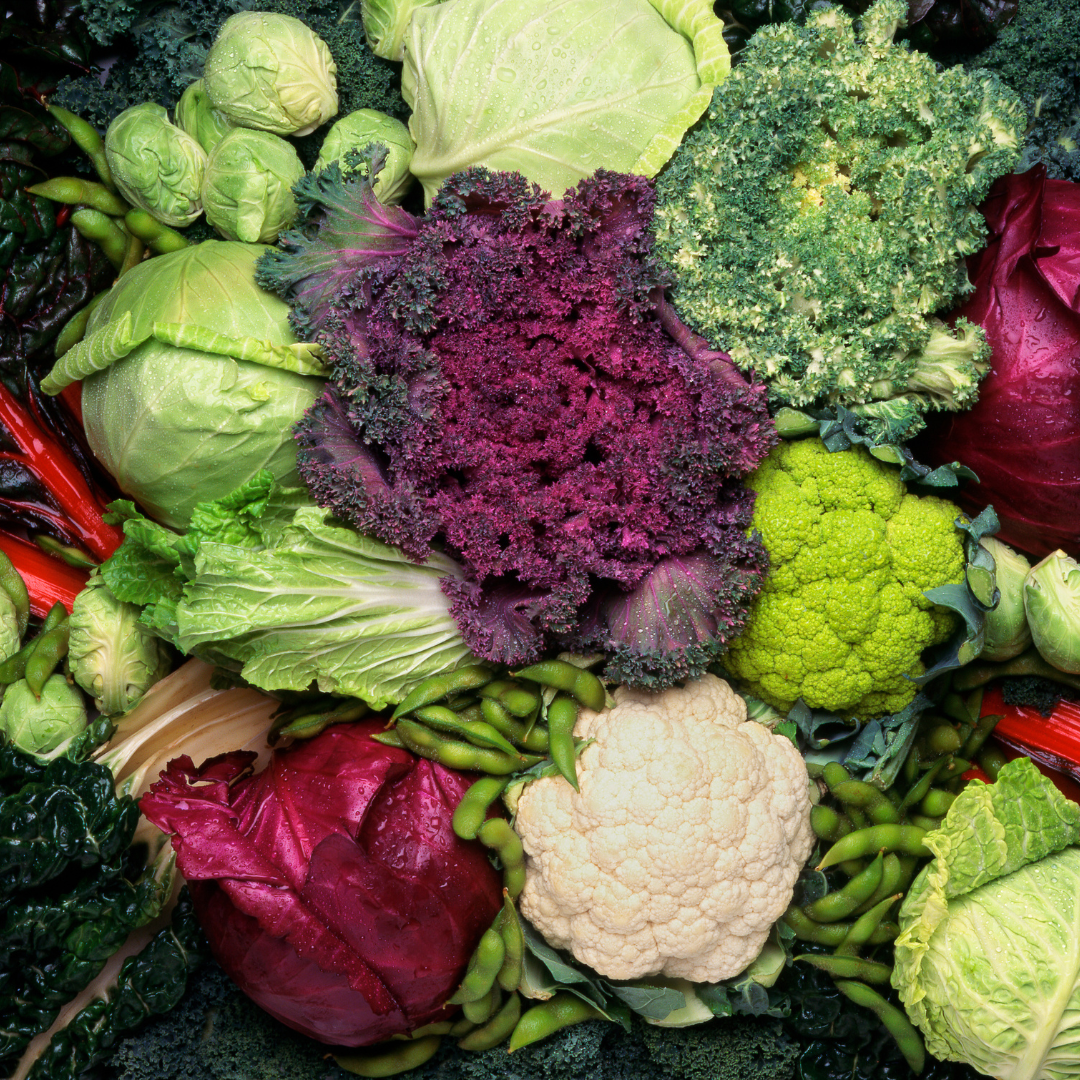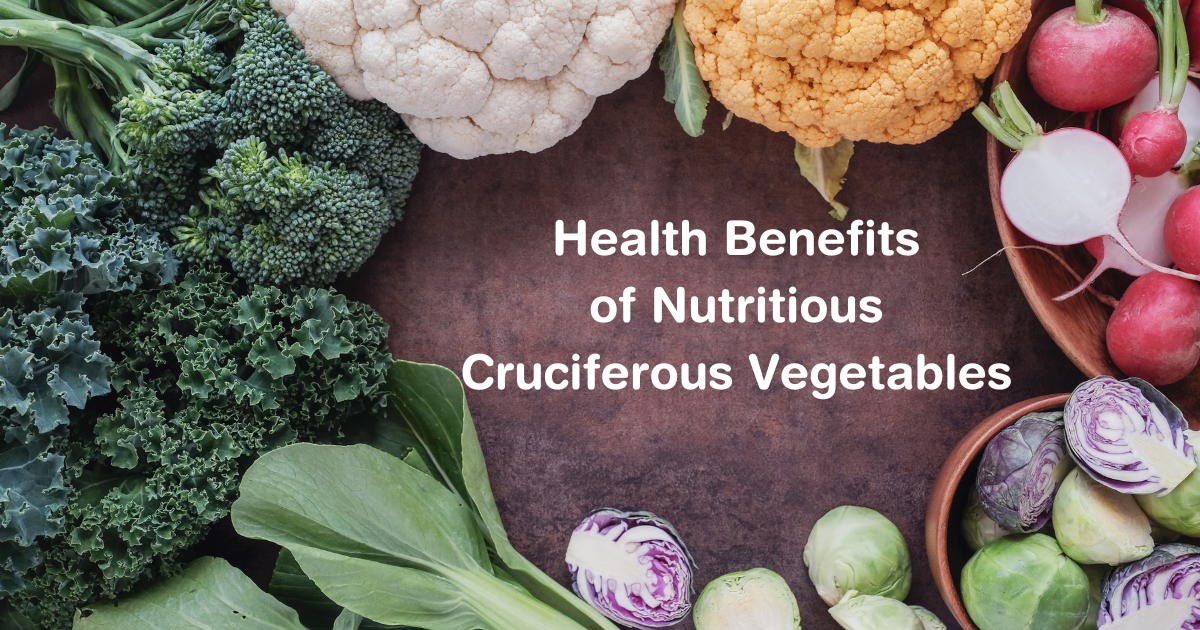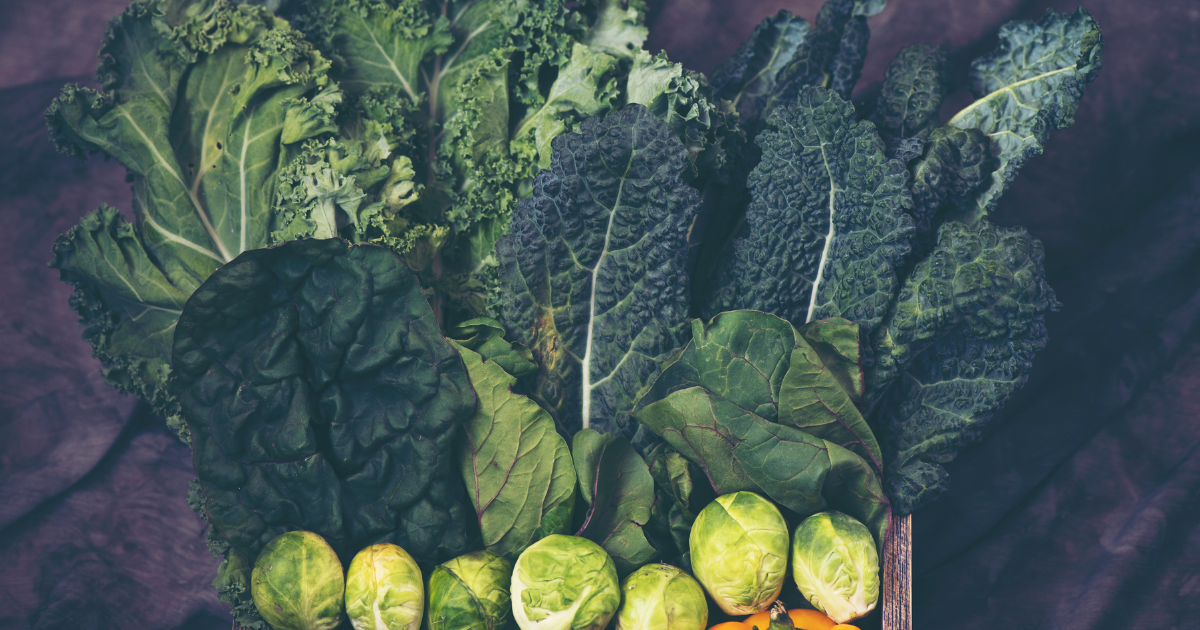Cruciferous Vegetables
Cruciferous veggies are among the healthiest plant-based foods. Vitamins, minerals, and antioxidants give them many health benefits. These vegetables are low in calories and high in fibre, making them great additions to any healthy diet.
Cruciferous vegetables provide folate, vitamin C, vitamin K, potassium, magnesium, and calcium. Carotenoids and other phytonutrients reduce oxidative stress and protect against cancer. Glucosinolates in these veggies lower inflammation and enhance heart health.
Dietary fibre in cruciferous vegetables regulates blood sugar, lowering the risk of type 2 diabetes. Due to their low calories and high nutrient density, these meals may also prevent obesity. Cruciferous veggies stimulate serotonin production, improving happiness and well-being.
What are Cruciferous Vegetables?
Antioxidant and vitamin-rich cruciferous veggies Broccoli, kale, cauliflower, Brussels sprouts, and cabbage are Brassicaceae.
High glucosinolate levels in these plants prevent cancer. Glucosinolates activate detoxifying enzymes to regulate carcinogen metabolism. Dietary fibre in these veggies aids digestion. Cruciferous vegetables reduce the incidence of colon, prostate, and bladder cancers.
Cruciferous vegetables also improve heart health due to their high vitamin C and magnesium content, bone strength due to calcium and other minerals, mental health due to their anti-inflammatory effects, skin complexion due to their anti-aging compounds, diabetes type 2 risk due to their low glycemic index value, and immune system resiliency.
Nutrients in Cruciferous Vegetables
Cabbage, Brussels sprouts, and kale are nutritious and healthy.
are nutrient-packed! They contain vitamins A, C, K1, folate, magnesium, calcium, phosphorus, and potassium. They also provide dietary fibre for intestinal wellness. Antioxidants in cruciferous vegetables protect cells.
These nutrients help prevent chronic diseases like heart disease, stroke, and cancer. Cruciferous vegetables also limit the absorption of glucose from the intestines after eating a carbohydrate-rich meal or snack, helping to maintain blood sugar levels. These vegetables’ dietary fibre binds cholesterol-derived bile acids in the intestines to lower cholesterol. Cruciferous vegetables may also delay cognitive deterioration with age, according to study.
Health Benefits of Cruciferous Vegetables
Broccoli and cauliflower are nutritious. Vitamins, minerals, and other substances in these veggies boost health. Fiber is a major benefit of these plants. Fiber bulks up stools and stimulates digestive tract peristaltic activity, preventing constipation. Dietary fibre can also lower the risk of chronic diseases like heart disease, stroke, type 2 diabetes, and cancer.
Cruciferous veggies provide vitamin C. Vitamin C is needed for collagen formation and immune system maintenance. It protects cells from free radical damage from environmental contaminants and unhealthy meals. Cruciferous vegetables also include antioxidants like polyphenols, which lower inflammation in chronic conditions like arthritis and asthma. Finally, due to their low calorie density and high nutritious value, these veggies may help weight loss.
Experts Opinion About Cruciferous Vegetables
Cruciferous vegetables have considerable health benefits, according to experts. These veggies, rich in vitamins, minerals, and phytonutrients, reduce cancer risk, protect the heart and brain from oxidative damage, and prevent chronic diseases. Cruciferous veggies reduce inflammation and cholesterol, according to research. They may also regulate blood sugar and fight diabetes.
For best health, nutritionists recommend regularly eating cruciferous vegetables. Broccoli, cauliflower, kale, Brussels sprouts, bokchoy, and cabbage. Eating them raw or simply boiled preserves their nutrients. Cruciferous vegetables are healthy and add colour and taste to meals!
Ways to Incorporate Into Cruciferous Vegetables Diet
Cruciferous veggies provide health benefits, so eat them. Salads might incorporate them into your diet. Fresh kale, cauliflower, broccoli, and Brussels sprouts add nourishment. To add flavour, roast or simmer these vegetables as a side dish. Cruciferous vegetables like cabbage and cauliflower can be made into soups or stir-fried with lean meats and quinoa. Finally, you can make nutrient-dense smoothies or juices using these veggies. These simple tweaks can boost your daily intake of healthy cruciferous veggies.
Challenges of Eating Cruciferous Veggies
Cruciferous veggies are nutritious but difficult to eat. Taste is cruciferous veggies’ toughest challenge. Many find them unpleasant or pungent, which may deter them from eating these beneficial foods. Several cruciferous vegetables have tough skins that take longer to cook. A person unfamiliar with cooking with these vegetables may not realise how much time is needed to prepare them before eating or cooking. Finally, cruciferous vegetables’ high water content makes storage difficult. They can expire rapidly and grow bacteria if not stored correctly in the fridge or freezer.
Conclusion
Cruciferous veggies’ health benefits outweigh their preparation and consumption difficulties. These vegetables lower the risk of cancer, heart disease, and diabetes. They are strong in fibre, which promotes regularity and digestion. Cruciferous veggies include vitamins and minerals that support wellness. Finally, they are low in calories but high in nutrients, making them ideal for weight loss or maintenance.
These benefits show why cruciferous vegetables should be eaten regularly. They can be used in any meal or snack preparation and are easy to make. Its little bitterness provides taste without salt or oil, helping you cut sodium while enjoying excellent meals.






